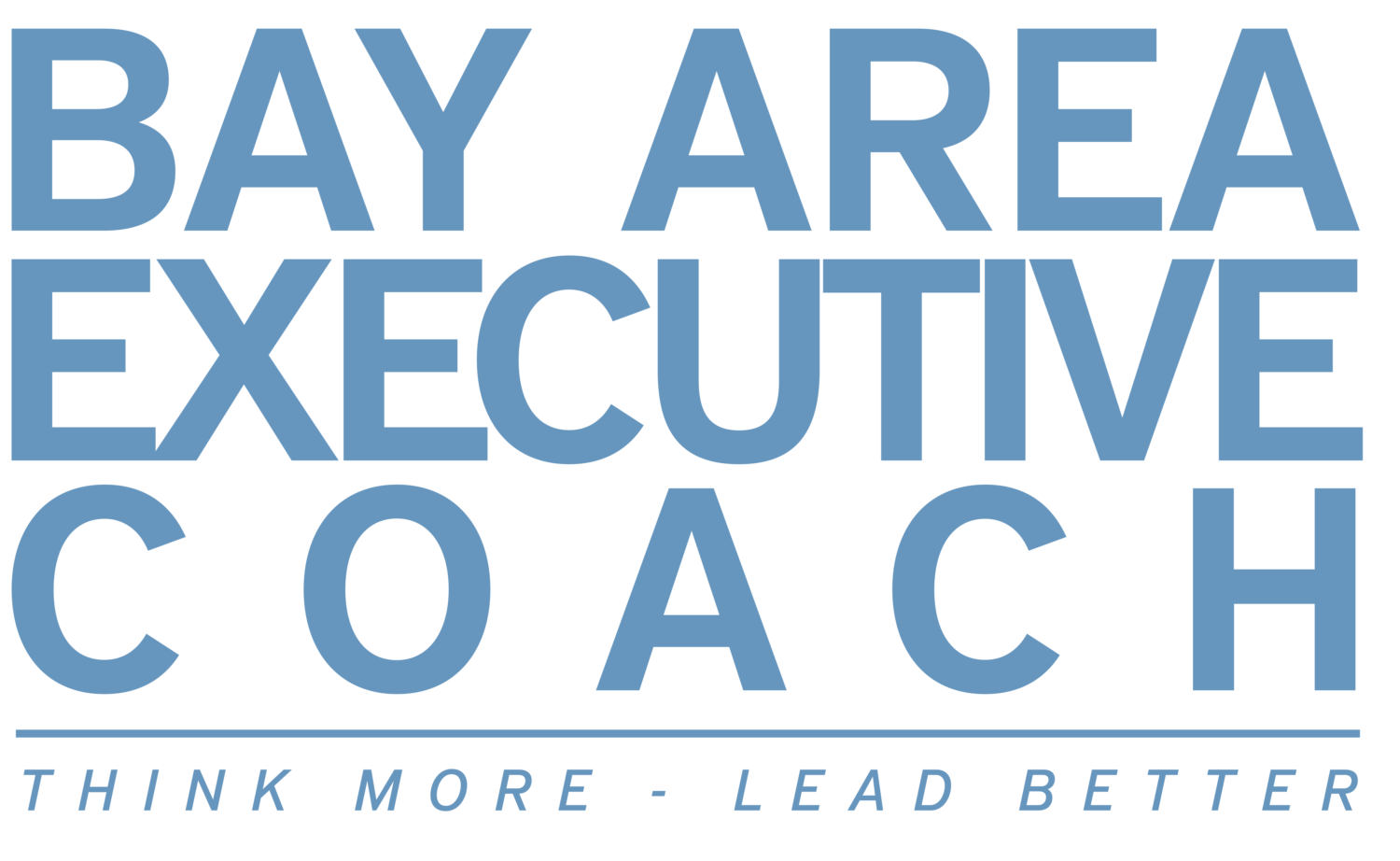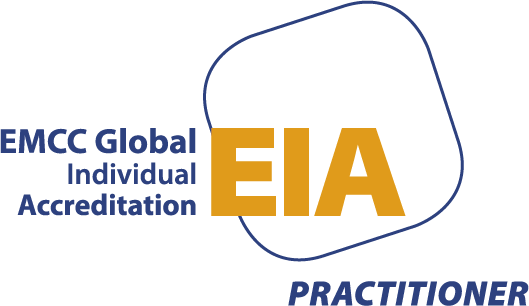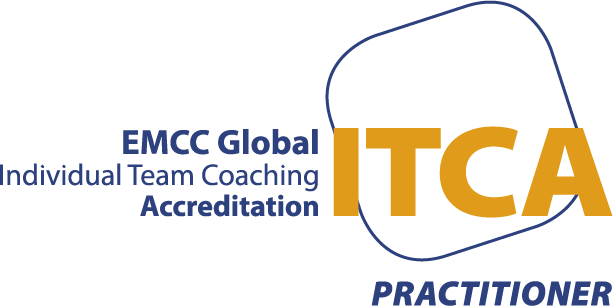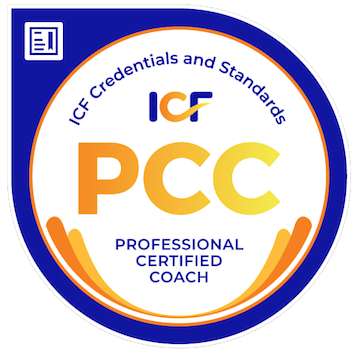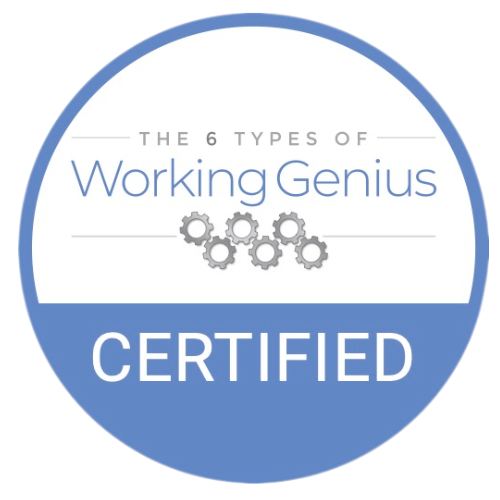Now here’s the same scenario with a different spin:
Although Emily feels somewhat discouraged from reading the latest sales reports, she decides a negative attitude would only make matters worse for her staff and her company. After carefully reviewing all the data once more, she finds areas for guarded optimism. Determined to rally the team, Emily tells her staff: “This is a challenging time but I see three areas where we could grow our sales numbers. We’ve been through tough times together before, and I know we can emerge from this stronger than ever. Let’s focus on these opportunities and maintain our positive attitudes.” Her staff return to their desks wit

h a renewed sense of optimism and determination, as exemplified by their boss.
Both of these scenarios are driven by the same set of facts, but what’s different, and what matters most, is the attitude of the person in charge. Through self-awareness of her emotions and the impact they have on everyone around her, the Emily in scenario #2 knows that any negativity she projects to her staff could have a significant down-regulating effect. After all, if she can’t lead by example, why should anyone else at Acme Technology act any differently?
Leadership and Self Awareness
Successful leadership is grounded in self-awareness, one of the foundations of emotional intelligence. Self-aware leaders continuously make an accurate and honest appraisal of their personalities, identifying what motivates or inspires them, while compiling an unvarnished self-assessment of their strengths and weaknesses. Savvy leaders know that without self-awareness, their effectiveness will always be limited, and they’ll struggle to properly balance conflicting demands or juggle myriad decisions to attain the best business results.
Self-aware leaders are in a better position to judge and adapt their leadership style because they’re better able to rein in emotions and behaviors detrimental to the welfare of their business operations. Self-aware leaders also have a clearer understanding of their own biases and prejudices and how they must act to overcome these personality flaws.
Two key elements of self-awareness are:
- Demonstrating awareness of the impact emotions can have on your thinking;
- Demonstrating awareness of the impact your feelings can have on how you interact with others.
“Impact” is the important word here because emotions can impact behavior in profound ways, and how you feel inside can alter how you act on the outside. Self-aware leaders recognize the power their emotions can have in affecting their team. Therefore, such leaders understand how crucial it is to not let negative thoughts and feelings get in the way of their positive-oriented game plan for leading their team or company.
Attaining Self-Awareness as a Business Leader.
Knowing as much as possible about your own personality – particularly as other people see it – is core to self-awareness. With this principle in mind, here are some proven ideas to help you increase self-awareness and thereby your leadership potential.

- Feel your feelings without judgment
Whether you’re feeling guilt, happiness, disappointment or excitement, don’t label your feelings as good or bad. The goal is to not judge your feelings but to understand them. By accepting your feelings, you can gain insight into what’s causing them. Once you understand why you’re feeling a certain way, you can let that set of emotions run its course and release them without risking damage to your reputation. Remember that your emotions are there to teach you something important. Are you listening? Self-aware people are.
- Seek feedback
Self-awareness is not an entirely internalized process. To truly know yourself, you need to gain insight into how other people perceive you. Although it may seem daunting, asking a trusted colleague, family member, friend or mentor for a true opinion of how you “show up” in various situations is a great way to gain a clearer understanding of yourself. It’s also a good idea to ask employees how you’re doing and how they see you in certain situations. By gathering feedback from different sources, you’ll see behavior patterns, and even hidden strengths, that you didn’t realize were there.
- Assess, and know, your strengths and weaknesses
Once you’ve made the effort of collecting feedback on how others perceive you, you have to put that information to use in the form of a strengths and weaknesses self-assessment. For example: Is your to-the-point interaction with peers and employees seen in a positive light, or does it come across as abrasive? Does your high energy level motivate others, or does it actually make people nervous and agitated? Do you criticize more often than you praise? Identify what you’re doing right and what could be better, and then work on improving in the areas that need work.
- Practice mindfulness
Be aware that you’re sending messages to others without even saying a word. Your feelings are communicated through your demeanor; the words you choose and the tone you use with other people. Did you just rush into the meeting you’re about to lead after sitting in traffic for an hour? You may be carrying some of that aggravated mood into your presentation without even realizing it. Remember that body language sends important messages too. Crossing your arms or checking your smartphone while someone’s talking can communicate a mood or state of mind that may or may not represent what you’re actually feeling or thinking. Being mindful of how you’re appearing to others, both verbally and non-verbally, is a big step toward self-awareness.
- Keep an open mind
Good leaders are naturally curious and open to new ways of doing things. When you welcome alternative viewpoints and ideas, you foster your own growth and development while making those around you feel supported and accepted. Be flexible to other ways or styles of working. If you’re a morning person but your immediate reports are most definitely not, consider switching that weekly 7 AM planning meeting to an afternoon slot to get better buy in and participation. A self-aware leader is also keenly aware of other people’s feelings, and flexes and adapts accordingly.
- Keep a journal
The biggest obstacle on your journey of self-awareness is objectivity. Taking time every day to write down how you feel, both emotionally and physically, will give you a deeper understanding of your emotions and how you’re responding. Be honest about your feelings and reactions – good or bad, without judgment. Your journal is a great place for you to chronicle your experiences and chart your progress toward greater self-awareness.
- Follow your values
We all have values and beliefs that we live by. Taking time to ask yourself if your behavior is in line with your belief system is a good way to keep your life in balance. If you find yourself reacting in ways contrary to your inner beliefs, such as yelling at your employees or spreading gossip about them, chances are you’re not in a good place emotionally. By becoming aware of the areas where you’re letting yourself down, you’ll be able to choose a different route that’s more reflective of who you really are or who you want to be.
The Payoff 
Self-awareness is a character trait of great leaders. By knowing your values, personality, needs, habits and emotions, and how they affect your actions and the actions of others, you’ll be better able to manage your stress, make better decisions and ultimately lead others to do the same.
By becoming more self-aware, and subsequently recognizing your strengths, weaknesses, and hidden biases, you can gain the trust and respect of your team members. Additionally, a corporate culture of self-awareness advances continuous growth and development among all employees, much to the benefit of all participants.
As a foundational aspect of emotional intelligence, self-awareness offers leaders far more than just another tool for success. It helps them remember why they wanted to become leaders in the first place. And that heightened sense of purpose can shape them into leaders worth following.
If you want to do more than imagine how heightened self-awareness can positively impact your leadership and take action with help, then consider bringing one of our Leading with Emotional Intelligence classes into your company or work with us one on one. Contact us to learn more.
A truly emotionally intelligent leader is one characterized by a heightened sense of awareness, both of themselves and of others, and uses that insight to lead more effectively. Here are some more resources on the topic:
Articles
- Cultivating Awareness of Others as a Business Leader
- Self-Awareness: The First Step to Emotional Intelligence for Sales Professionals
- 9 Top Signs You Need an Emotional Intelligence Coach
- Eight Powerful Benefits of Emotional Intelligence in the Workplace
- How to Build Trust and Connection Through Emotional Intelligence
- Bay Area Executive Coach to Offer Genos International Emotional Intelligence Assessments
- Leading with Emotional Intelligence
YouTube Videos
- 4 Reasons Why You Need to Invest in Your Emotional Intelligence as a Leader
- Leadership Assessment for Emotional Intelligence
- Using Emotional Intelligence in Executive Coaching With Expert Trevor Blondeel
- Improve Communication Using the “Three Levels of Conversation” in Your Business
- How to Have Better Sensitive Conversations as a Leader
- What is Conversational Intelligence? An Introduction to C-IQ
Case Studies
- Guiding a Leader to Employ Emotional Intelligence at Work
- How Conversational Intelligence Helped Resolve Friction in a Manager-Staff Relationship
eBook
Guide
Featured photo is from ©Andrea Piacquadio via Pexels. Secondary photo is from ©Tima Miroshnichenko via Pexels.
